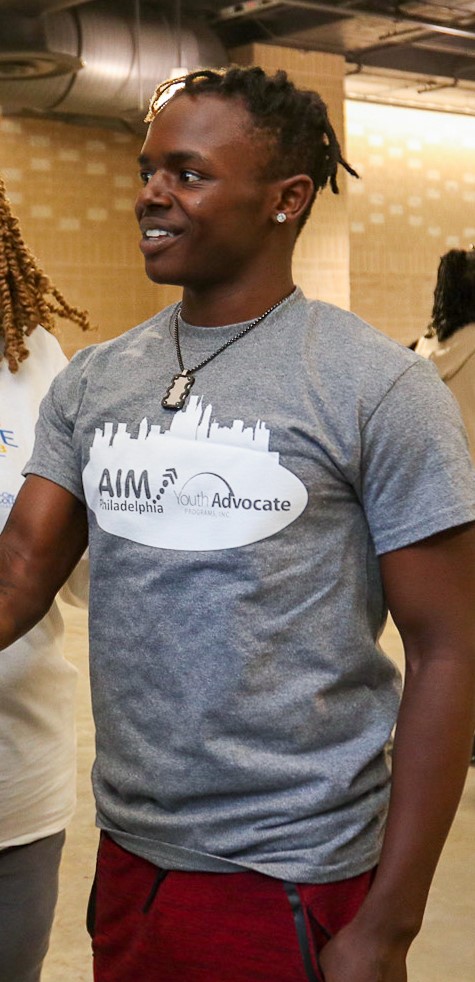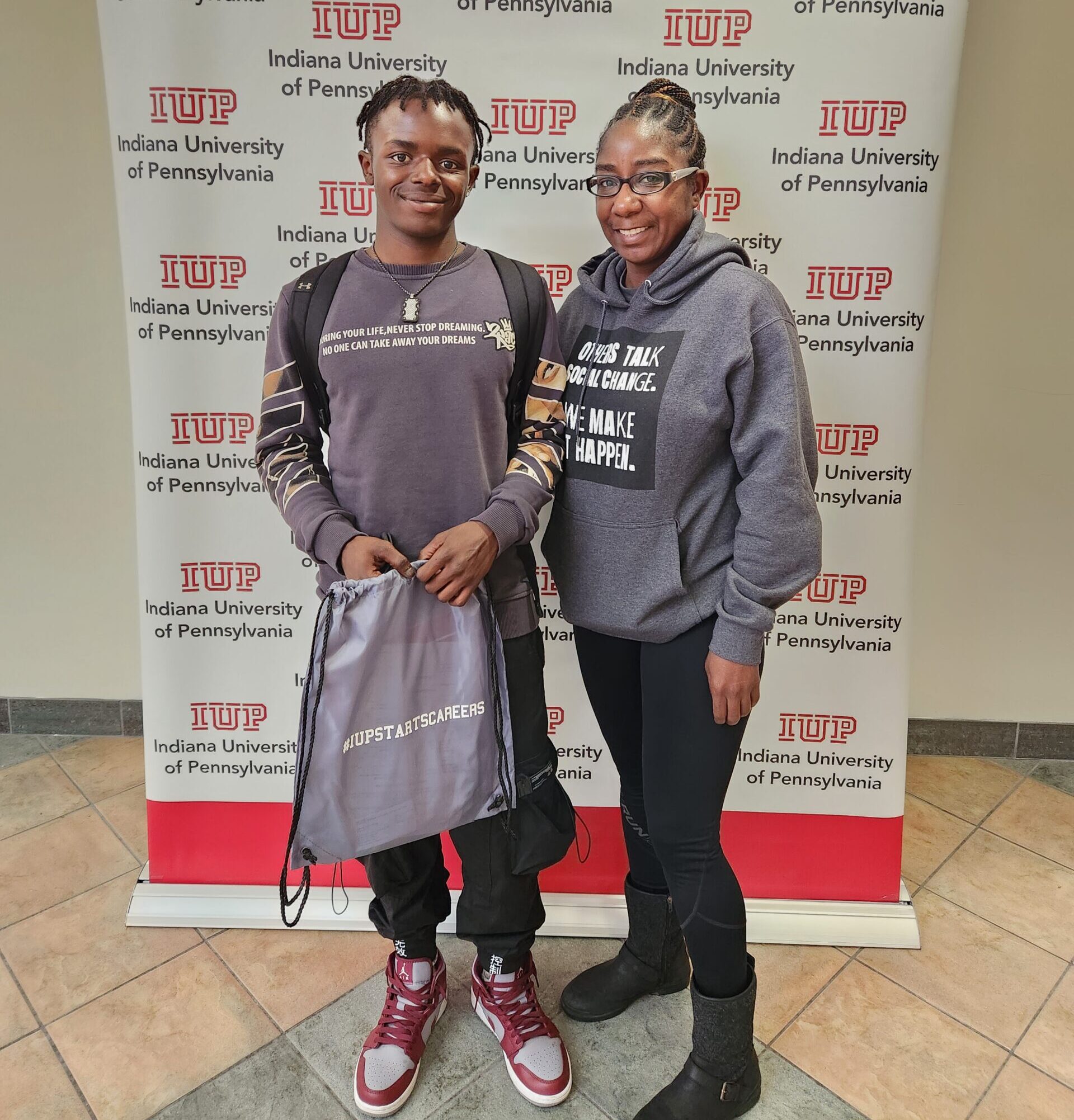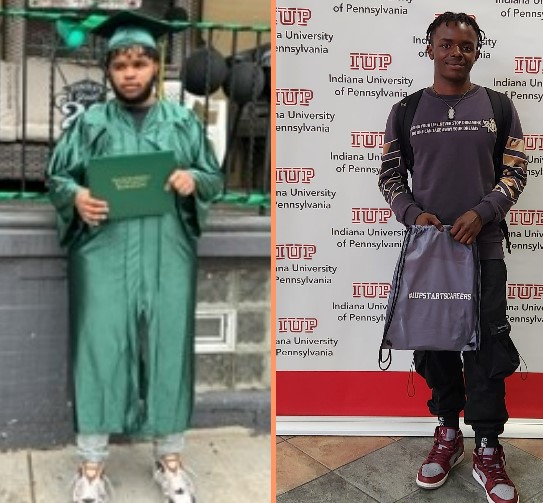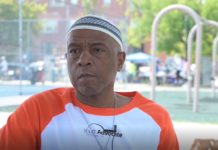Philadelphia — A year ago, Nasir and Dameen were among the disturbing numbers of Philadelphia youth facing serious juvenile court charges. Today, at 18, they’re looking forward to the fall when they will be college students, with scholarships in tow to ease the financial burden.

Dameen is headed to Howard University in Washington, D.C. where he plans to major in math.
“I thought I’d messed up everything for myself,” he said, looking back to the day he was arrested.

Nasir is on his way to Indiana University of Pennsylvania (IUP), where he will pursue an international business major.
“A lot of people are proud of me. They’ve seen me go a long way,” Nasir said.
As a condition of their probation, Philadelphia Juvenile Justice Services Center Family Court hearing officers assigned Nasir and Dameen to Youth Advocate Programs (YAP), Inc. A national nonprofit in 35 states and the District of Columbia, YAP partners with youth justice, child welfare, education, behavioral health, and other systems to provide community-based services as more effective and equitable alternatives to youth incarceration and residential care. Upon their acceptance to college, YAP awarded both young men a Tom Jeffers Endowment Fund for Continuing Education Fund scholarship. Named for YAP’s founder and funded by employee donations, the scholarship provides eligible current and former program participants with $1,000 for college tuition, job training/supplies fees, or a laptop computer.

Dameen’s arrest for possession of a weapon was his first brush with the youth justice system. YAP Advocate Sierra Jones saw his determination from the start, reminding him often that he is much more than his worst mistake.
“Sierra made me forget about all that; let me know that it was a mistake that I could move on from,” he said. “Like my mom, she’s always wanted to keep me on track and to do the right thing.”
YAP recruits neighborhood-based Advocates spanning from GED to PhD educational level whose backgrounds and experiences enable them to relate to youth and families they serve.
“When I met Dameen, I saw more than a kid with a [serious] charge. I saw myself as a teenager who needed more motivation,” Jones said.
Jones said working with Dameen and other YAP program participants motivated her to complete work to earn her human services degree.
Like Dameen, Nasir came to YAP through a Family Court hearing officer.
Nasir said prior to landing in YAP, he had made many poor choices with multiple arrests and court cases.
“The first time I got in trouble, I was in the 8th grade and got suspended from school. It was 33 days before I was supposed to graduate from middle school,” he said.
Nasir said things continued to get worse, especially when he was incarcerated in a youth facility six hours from home. He said he returned to Philadelphia angry and picked up where he left off.
“Three days before my February court date, I stole a car; got into a cop chase,” he recalled. “I went to the hospital. I broke my right femur bone and broke my leg. They sent me to a cell with one crutch. I had to get up to knock on the door to go to the bathroom.”
That was the offense that led him to YAP.
Guided by principles of unconditional caring and never rejecting or ejecting program participants, YAP Advocates go beyond traditional mentoring, empowering program participants to see their strengths and connecting them with educational, economic, and emotional tools to nurture them.

“It was a rocky start; he didn’t want to listen to anyone,” said YAP Advocate Caprea Ross, adding that she backed off a little before Nasir finally warmed up to her. Spending time with him during his community service job, Ross took time to get to know Nasir and saw that he was a hard worker. When she learned Nasir was taking AP calculus, she encouraged him to apply himself at school, too.
“Once he got situated in school he started thriving,” she said.
As Nasir’s grades continued to improve, he added another AP class.
“School and books; everyone always told me I was smart. I’m a good speaker. I’m a reader,” he said, adding that he just finished Don Winslow’s “The Cartel.”
As part of YAP, Advocates partner with parents and guardians, with the goal of working as a team in demonstrating unconditional kindness.
Jones said Dameen’s mother’s care, concern and commitment to her son’s growth have been key to keeping him on track to meet his goals.
“We have a rapport,” she said. “Mom communicates with me, which makes my job much easier. We’re on the same team. She is very supportive which makes me go the extra mile.”
Like Jones, Ross sees parental involvement as critical, adding that she has a special relationship with Nasir’s mother.
“I say we’re a family; we hold one another accountable,” she said.
When Nasir learned of his acceptance to IUP, Ross got permission from his mom and probation officer to drive him four and a half hours to Indiana, Pa. for a campus orientation.
“His PO (probation officer), mom, me, the judge; we’re all on the same page,” Ross said. “He’s a good kid who just made some bad decisions. We’re all here to support him.”
To help with expenses, Ross enrolled Nasir in YAP Supported Work, which enables program participants to receive compensation from the nonprofit while working for a local business that aligns with their interests.
“He’s going to be at an auto body shop,” Ross said.
Having graduated high school and completed the requirements for probation, Dameen and Nasir will enter college with a clean record.
“Dameen’s self-determination allowed him to excel these past couple of months. As his Advocate, it was my duty to help him see that mistakes don’t define your future,” Jones said.
“I guess I always knew what I was capable of,” Dameen said.

Both young men say they understand that as part of the program, YAP expects them to give back to their communities. They say already their turnaround stories are inspiring friends, relatives, and neighbors to see new possibilities for themselves as well.
“The YAP program benefited my life so much by giving me so many outlets” Nasir said. “The program helped me learn how to stay focused on things in life and to have things in order.”
YAP’s decades of service include working with many young people whose histories include serious offenses, multiple arrests, and lengthy out-of-home placements. John Jay College of Criminal Justice research found 86% of YAP’s youth justice participants remain arrest free, and six – 12 months after completing the program, nearly 90% of the youth still lived in their communities with less than 5 percent of participants in secure placement.
Learn more about YAP at www.yapinc.org and follow the organization on Twitter @YAPInc.



















